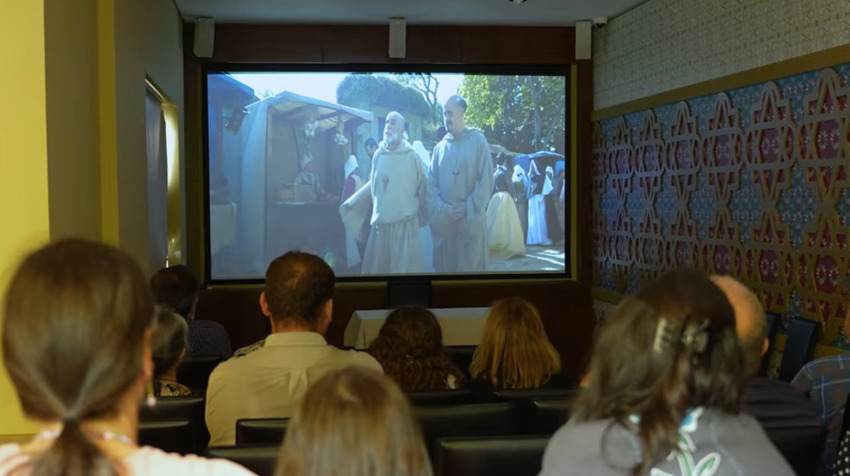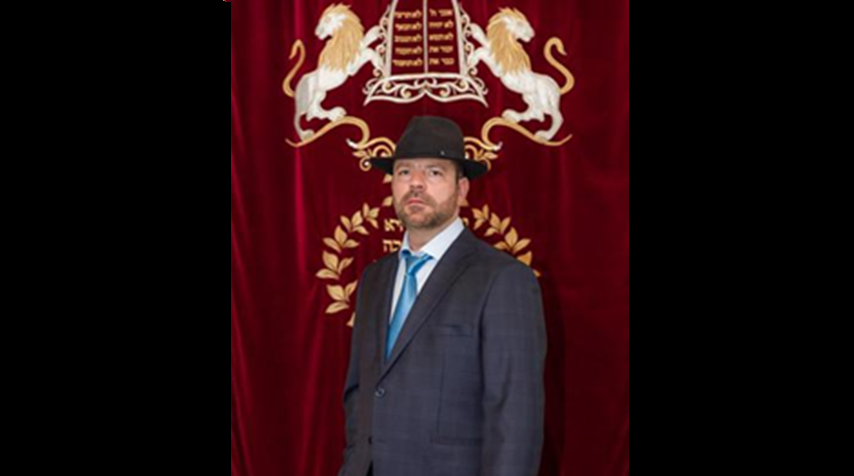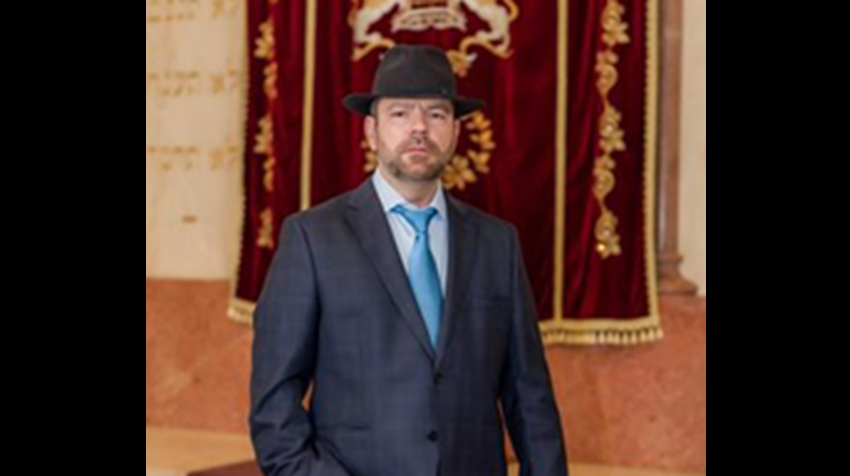The films produced by the Jewish Community of Oporto are available on YouTube and are screened at events promoted by the community. Credit: CIP/CJP
There can be nothing greater in terms of preserving Jewish memory, which is an integral part of Judaism, than the production of films and documentaries based on historical sources of great value and reliability. The Jewish Community of Oporto produced a series of documentaries about Jewish history in Portugal. None of the films were interrupted by artistic notes or inventions, since the objective was to portray historical events. The scripts were written by members of the community, namely David Garrett and Hugo Vaz.

The Jewish Museum of Oporto has a room dedicated to the awards that the films have received at national and international festivals. Credit: PJN
"The Light of Judah" – This film takes a historical journey that spans centuries. From the medieval fairs to the environment of the study rooms of the most cultivated Jews, from the edict of expulsion to the violence of the departure and dispossession of goods and property, from the Inquisition to the rebirth of the Jewish community of in the twentieth century, from the Ashkenazi Jew who founded an association with Captain Barros Basto and officially reestablished a Jewish community in the city until the attempt to rescue the Portuguese Marranos by the captain and the Sephardic diaspora, from the cooperation with the Portuguese-Spanish congregation in London to the construction of the largest synagogue in the Iberian Peninsula, from the "Portuguese Dreyfus" case to the arrival and reception of refugees from Nazism, from the decades of emptiness faced by the community to its revitalization in the 21st century, this extremely complete film ends with a mention of the protocol of friendship celebrated between the community and the Catholic diocese in 2018. It is a historical journey.

Scene of the film "The 2000 Jewish children exiled"
"The 2000 Jewish children exiled" - The film documentary recounts the tragic fate of two thousand Jewish children who, by order of Dom João II, were exiled to the distant and inhospitable island of São Tomé, 7500 kilometers from Lisbon, after the Expulsion from Spain in 1492. The film recounts the miseries of the exodus, the entry of 120,000 refugees into Portugal, the death of Isaac Aboab in , his funeral given by rabbi and astronomer Abraão Zacuto, the atmosphere in the city, the old synagogue, the exorbitant demands of the monarch to make the hospitality of the Spanish community profitable and the drastic actions he took towards the defaulters. The dangers and nightmares of the boat trip are narrated, as well as the arrival on the island populated by wild animals that, according to chroniclers of the time, swallowed people alive.

The films produced by the Jewish Community of Oporto are available on YouTube and are screened at events promoted by the community. Credit: CIP/CJP
"1506 – The Genocide of Lisbon" – This is another documentary of great quality. It recounts a massacre against the Jews that has been forgotten in history and that is still not integrated into school curricula. For three days, between two and four thousand Jews were murdered in Lisbon. The bonfires were as high as houses, in a city full of dismembered bodies and where heads were paraded on the tips of spears. It was a time of the Black Death and so the city was unguarded in terms of security, since the king and the nobility had chosen to remain on the periphery. Ancient anti-Semitic myths led to disaster. All it took was a small spotlight, literally, to light the fuse that generated so much perdition. It was a popular initiative. The king severely repressed the guilty and the city itself withdrew all privileges.

Scene of the film "1618"
"1618" - This documentary film has become the most internationally awarded in the history of Portuguese cinema. More than a hundred New Christians were arrested, causing terror in the New Christian community, mass emigration and the almost total destruction of the city's economy. The Inquisition is faithfully portrayed: its philosophy, the exhortation to denounce, the hatred and envy of the people as the engines of the accusations, the collaborators of the Inquisition, the prison carriages, the ghastly prisons, the life in the cells, the false prisoners who spied on other detainees, the secret crevices through which the jailer observed what was done and said, the fate of the prisoners, the torture, the public humiliation, the garroteting, the stake, the threatened future of so many innocents. A curious detail in this real story was the friction between the judicial authorities of and the inquisitorial visit. The relationship between these entities became so extreme that guards on horseback surrounded the ecclesiastical court. The Inquisitor, feeling disregarded, traveled to Spain to complain to King Dom Filipe, but did not hear what he wanted. The Justice of the time was independent and in that specific case it proved to be.

Scenes of the film "Sefarad"
"Sefarad" – This tells the story of Jews in Oporto since 1923, when Barros Basto, a Portuguese army captain converted to Judaism, and about twenty Jewish merchants from Central and Eastern Europe officially founded the Jewish community in a city that had not heard about Jews for centuries. Soon the community found itself persecuted by Lisbon elites who made use of anonymous letters from outlaws to prosecute the captain, expel him from the army and destroy the community. The ‘Portuguese Dreyfus’ case, as it became known abroad, is shown in this film in some detail, as is the officer's trial. The film ends with the Oporto community, which had been silent for many decades, when it finally rises again in the twenty-first century.

Scene of the film "The Nun's Kaddish"
"The Nun's Kaddish" - This short film produced by the community portrays a true story of interfaith kindness that occurred in 1982, when a nun observed a Jewish memorial ritual on behalf of a deceased Jew, Emil Oppeneim, elevating the spirituality of the two religions to a higher feeling of universal brotherhood. The Jewish community of Oporto, persecuted and destroyed by the State in the 1930s, was then practically non-existent. None of its members were present at the burial of Oppenheim, a renowned German jurist, who arrived in the city during the Nazi persecution. He remained in until the end of his life working in a small laundry. The kind nun, who had treated him when he was sick, promised to read the kaddish prayer in his and so she did.


































